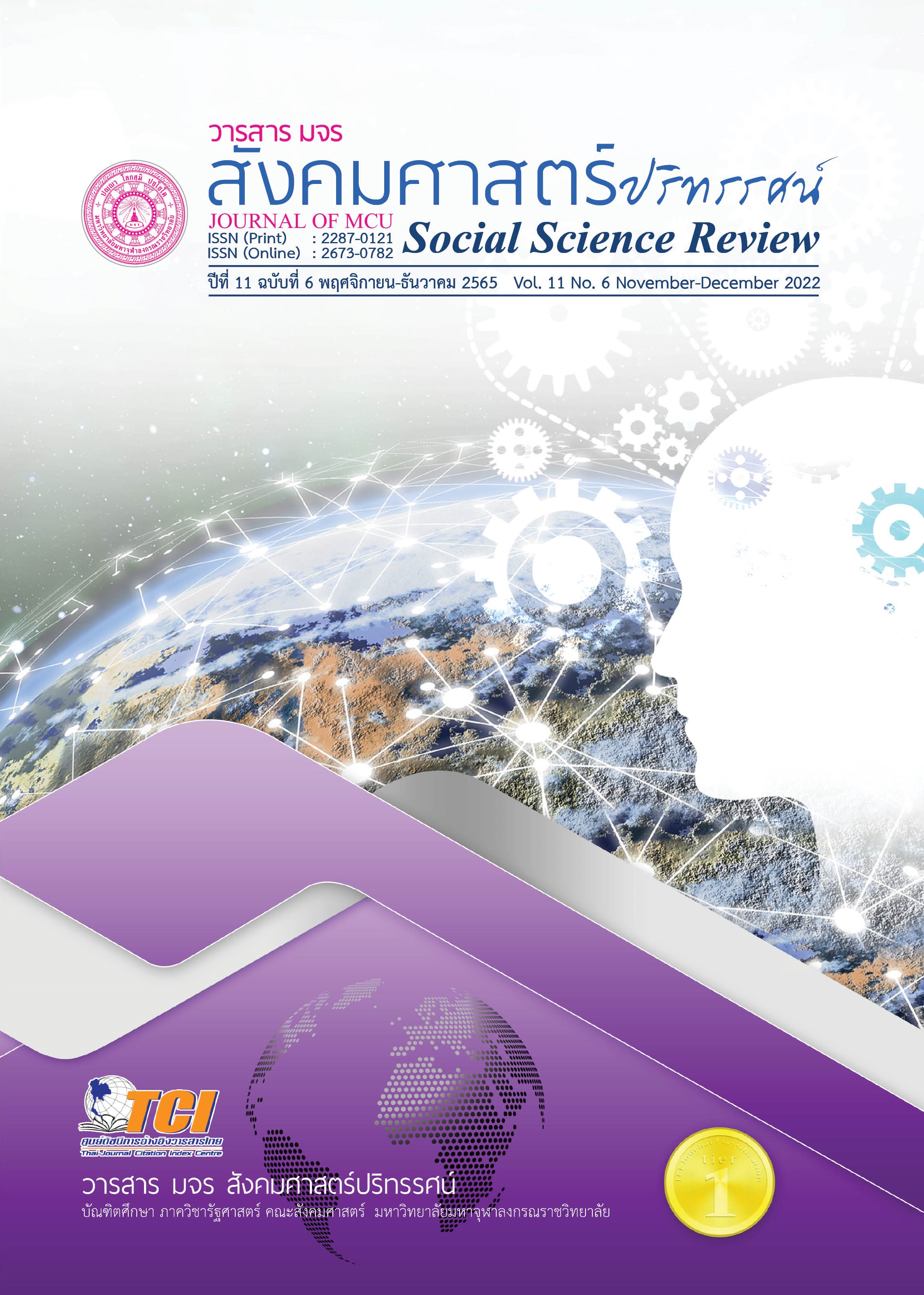การศึกษาพฤติกรรมการถูกรังแกบนโลกไซเบอร์ที่มีต่อระดับความสามารถในการคิดสร้างสรรค์ของนักศึกษาระดับปริญญาตรี มหาวิทยาลัยราชภัฏภูเก็ต
คำสำคัญ:
พฤติกรรม, การถูกรังแกบนโลกไซเบอร์, ความสามารถในการคิดสร้างสรรค์บทคัดย่อ
บทความวิจัยนี้มีวัตถุประสงค์เพื่อ 1) เพื่อศึกษาพฤติกรรมการถูกรังแกบนโลกไซเบอร์ของนักศึกระดับปริญญาตรี และ 2) เพื่อเปรียบเทียบความสามารถในการคิดสร้างสรรค์ระหว่างนักศึกษาระดับปริญญาตรีกลุ่มที่ถูกรังแกบนโลกไซเบอร์สูงกับกลุ่มที่ถูกรังแกบนโลกไซเบอร์ต่ำ กลุ่มตัวอย่าง คือ นักศึกษาระดับปริญญาตรีจำนวน 600 คนจาก 11 สาขาวิชา คณะครุศาสตร์ที่ได้มาจากการสุ่มตัวอย่างแบบแบ่งชั้นอย่างเป็นสัดส่วน (Proportional Stratified Random Sampling) และกลุ่มตัวอย่างที่ใช้ในการเปรียบเทียบความสามารถในการคิดสร้างสรรค์ระหว่างกลุ่มที่ถูกรังแกบนโลกไซเบอร์สูงจำนวน 162 คน และกลุ่มที่ถูกรังแกบนโลกไซเบอร์ต่ำจำนวน 162 คน เครื่องมือที่ใช้ในการเก็บรวบรวมข้อมูล คือ แบบสอบถามการถูกรังแกบนโลกไซเบอร์ 5 ระดับ ทดสอบค่าความเชื่อมั่นโดยใช้วิธีของครอนบัค มีค่าความเชื่อมั่น 0.98 และ แบบทดสอบความสามารถในการคิดสร้างสรรค์ทดสอบค่าความเชื่อมั่นโดยใช้วิธี Kuder-Richardson 20 โดยได้ค่าความเที่ยง 0.81
ผลการวิจัยพบว่า พฤติกรรมการถูกรังแกบนโลกไซเบอร์ของนักศึกษาระดับปริญญาตรี คณะครุศาสตร์อยู่ในระดับน้อยทั้งหมด (Ranges = 1.80-2.59) และนักศึกษาระดับปริญญาตรีที่ถูกรังแกบนโลกไซเบอร์ต่ำมีคะแนนความสามารถในการคิดสร้างสรรค์สูงกว่านักศึกษาระดับปริญญาตรีที่ถูกรังแกบนโลกไซเบอร์สูงอย่างมีนัยสำคัญทางสถิติที่ระดับ 0.05
เอกสารอ้างอิง
โชติกา ภาษีผล. (2558). การวัดและประเมินผลการเรียนรู้. กรุงเทพฯ: คณะครุศาสตร์ จุฬาลงกรณ์มหาวิทยาลัย.
ปองกมล สุรัตน์. (2561). การรังแกผ่านโลกไซเบอร์ในมิติสังคมวัฒนธรรม: กรณีศึกษา เยาวชนไทย เจนเนอเรชั่น Z (ปริญญานิพนธ์ดุษฎีมหาบัณฑิต สาขาวิชาการวิจัยพฤติกรรมศาสตร์ประยุกต์). กรุงเทพฯ: มหาวิทยาลัยศรีนครินทรวิโรฒ.
วรพงษ์ วิไล และ เสริมศิริ นิลดำ .(2561). พฤติกรรมการรังแกกันผ่านโลกไซเบอร์ของนักเรียนระดับมัธยมศึกษาในจังหวัดเชียงราย : กรณีศึกษาโรงเรียนเทศบาล 6 นครเชียงราย. CRRU Journal of Communication Chiangrai Rajabhat University, 1(2), 1-24.
วรุตม์ อินทฤทธิ์. (2562). ผลของการเรียนการสอนสังคมศึกษาบนฐานทฤษฎีพุทธิพิสัยของบลูมฉบับปรับปรุงที่มีต่อความสามารถในการคิดอย่างมีวิจารณญาณและความสามารถในการคิดสร้างสรรค์ของนักเรียนระดับมัธยมศึกษาตอนปลาย: การทดลองแบบสี่กลุ่มโซโลมอน. วารสารวิทยบริการมหาวิทยาลัยสงขลานครินทร์, 30(3), 182-192
สรานนท์ อินทนนท์.(2561). การกลั่นแกล้งบนโลกไซเบอร์. กรุงเทพฯ: มูลนิธิส่งเสริมสื่อเด็กและเยาวชน
Akram, W. & Kumar, R. (2017). A Study on Positive and Negative Effects of Social Media on Society. International Journal of Computer Sciences and Engineering, 5(10), 347-354.
Farhangpour, P. et al., (2019). Emotional and Academic Effects of Cyberbullying on students in a rural high school in the Limpopo province, South Africa. South African Journal of Information Management, 21(1), 1-8.
Gündüz, Ş. et al., (2021). Determination of Secondary School Students' Levels of Sensitivity towards Cyberbullying and Cyberbullying Behaviour. Participatory Educational Research (PER), 8(1),70-89.
Hinduja S. & Patchin, J. W. (2010). Bullying, Cyberbullying and Suicide. Archives of Suiside Research. 14(3): 206-221.
Hong, J.S., et al., (2014). A Conceptual Framework for Understanding the Association Between School Bullying Victimization and Substance Misuse. American Journal of Orthopsychiatry, 84(6), 696-710.
Jotia, A. & Tjavanga, H. (2012). School bullies and education in botswana: impact on other students and academic performance. Academic Research International. 2(1), 641-650
Muzamil, M., & Shah, G. (2016). Cyberbullying and self-perceptions of students associated with their academic performance. International Journal of Education and Development using Information and Communication Technology, 12(3), 79-92.
Navarro, R., et al., 2017Cyberbullying victimization and fatalism in adolescence: Resilience as a moderator. Children and Youth Services Review, 84, 215-221.
Tolia. A. (2015). Cyberbullying: Psychological Effect on Children. International Journal of Indian Psychology, 3(2), 48-51.
ดาวน์โหลด
เผยแพร่แล้ว
รูปแบบการอ้างอิง
ฉบับ
ประเภทบทความ
สัญญาอนุญาต
ลิขสิทธิ์ (c) 2022 วารสาร มจร สังคมศาสตร์ปริทรรศน์

อนุญาตภายใต้เงื่อนไข Creative Commons Attribution-NonCommercial-NoDerivatives 4.0 International License.
เพื่อให้เป็นไปตามกฎหมายลิขสิทธิ์ ผู้นิพนธ์ทุกท่านต้องลงลายมือชื่อในแบบฟอร์มใบมอบลิขสิทธิ์บทความให้แก่วารสารฯ พร้อมกับบทความต้นฉบับที่ได้แก้ไขครั้งสุดท้าย นอกจากนี้ ผู้นิพนธ์ทุกท่านต้องยืนยันว่าบทความต้นฉบับที่ส่งมาตีพิมพ์นั้น ได้ส่งมาตีพิมพ์เฉพาะในวารสาร มจร สังคมศาสตร์ปริทรรศน์ เพียงแห่งเดียวเท่านั้น หากมีการใช้ภาพหรือตารางหรือเนื้อหาอื่นๆ ของผู้นิพนธ์อื่นที่ปรากฏในสิ่งตีพิมพ์อื่นมาแล้ว ผู้นิพนธ์ต้องขออนุญาตเจ้าของลิขสิทธิ์ก่อน พร้อมทั้งแสดงหนังสือที่ได้รับการยินยอมต่อบรรณาธิการ ก่อนที่บทความจะได้รับการตีพิมพ์ หากไม่เป็นไปตามข้อกำหนดเบื้องต้น ทางวารสารจะถอดบทความของท่านออกโดยไม่มีข้อยกเว้นใดๆ ทั้งสิ้น





